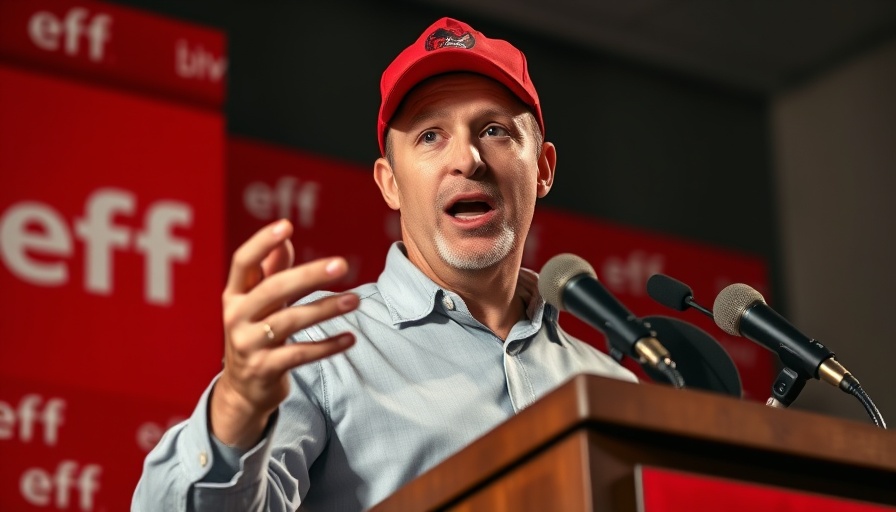
Understanding the Ramifications of Hate Speech in Politics
The recent ruling by the Western Cape Equality Court against Economic Freedom Fighters (EFF) leader Julius Malema for hate speech has ignited a vital conversation around the implications of such statements within South Africa's complex political landscape. The Democratic Alliance (DA) has hailed the decision, viewing it as a significant victory for civil discourse and accountability in political rhetoric.
Contextualizing Malema's Statements: A Political Flashpoint
This ruling pertains specifically to remarks made by Malema during the EFF’s third provincial People’s Assembly in 2022—statements deemed divisive and inciting hate among various factions of the South African populace. The current political milieu, marred by economic hardships and social disparities, suggests that inflammatory rhetoric can further entrench societal divisions and undermine efforts toward racial reconciliation, gender equity, and overall societal harmony. DA spokesperson Willie Aucamp aptly remarked that such discourse is unacceptable, regardless of political affiliation. This ruling serves as a stern reminder that freedom of speech should not belittle the dignity of individuals or groups in the quest for political power.
Political Stakes: The DA's Strategic Position
The DA's endorsement of the court’s verdict can be seen as part of a broader tactical maneuver to assert its position as a key player in the opposition landscape ahead of the upcoming 2024 general elections. By emphasizing the necessity of accountability, the DA aims to bolster its image as a party committed to upholding democratic values and human rights, particularly in a period characterized by rampant state capture and corruption narratives. This incident amplifies discussions surrounding the roles of opposition parties in safeguarding democratic principles, especially as discussions around coalition governments and political realignment emerge.
Reaction Across the Political Spectrum
The verdict has drawn diverse reactions within South Africa’s multifaceted political arena. Supporters of the DA praise the outcome as a triumph for human rights, while critics argue it represents a potential suppression of revolutionary discourse. Malema, who has often positioned himself as a champion for marginalized communities, might frame this ruling as an attack on free speech, thereby galvanizing his base leading into the 2026 municipal elections. Such dynamics highlight the friction present among political factions navigating the evolving landscape within the nation.
Implications for Future Electoral Dynamics
As political tensions mount, the focus on electoral integrity becomes increasingly pertinent. The ruling against Malema not only raises questions about the limits of political speech but also serves as a crucial touchstone for debates surrounding electoral reform in South Africa. With the DA hinting at potential further actions to ensure serious consequences for Malema, it indicates an active commitment to influencing how hate speech is managed in public discourse.
Legal Precedent or Politically Motivated? Weighing Perspectives
While the court's decision is a significant legal benchmark, the implications could extend beyond mere legality. The ruling poses a challenge to future political discourse and perceptions of freedom of speech within South Africa. As accusations of selective justice arise, various factions must grapple with what this means for political engagement—whether it will promote a healthier dialogue or suppress necessary discussions about social inequities and historical injustices.
Final Thoughts: A Call for Responsible Political Engagement
The judgement serves not only as a legal decision but as a directive for all political leaders: to engage in responsible, inclusive dialogue that seeks to uplift rather than divide. It's imperative for all parties, including the ruling African National Congress (ANC), opposition coalitions, and emerging political entities to navigate these waters with care. As the nation gears up towards the elections, a more accountable and constructive political atmosphere could lead to invigorated public trust in governance.
In this climate of accountability, citizens are encouraged to remain engaged and advocate for a political environment that transcends polarizing rhetoric and tackles the pressing issues of corruption, public service delivery, and income inequality head-on.
 Add Row
Add Row  Add
Add 




Write A Comment